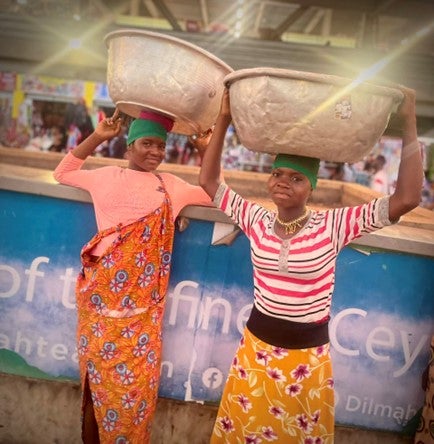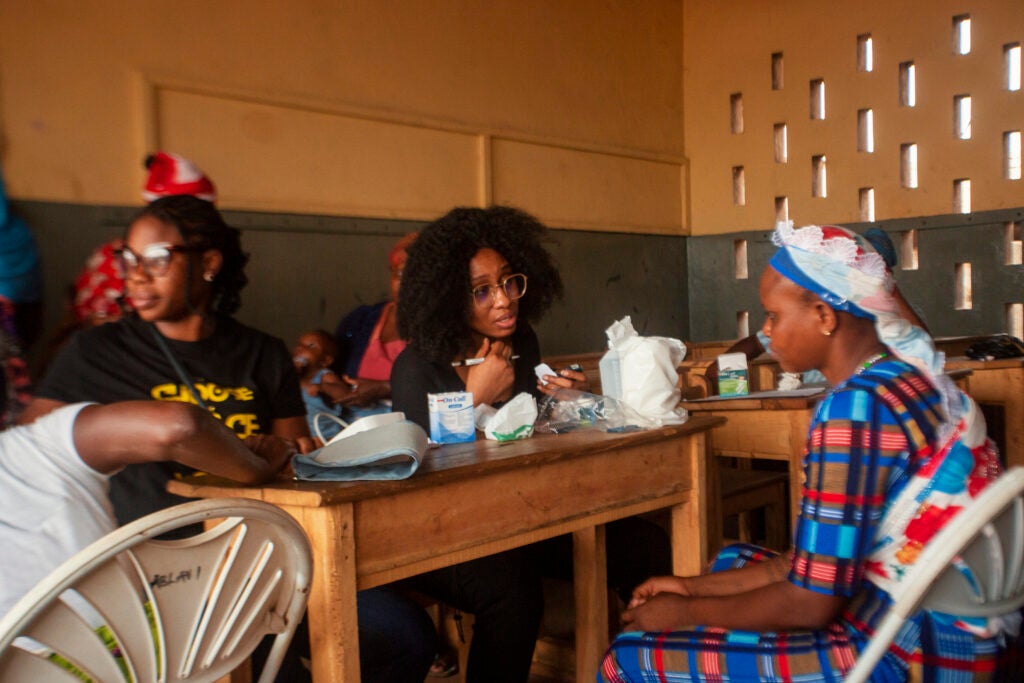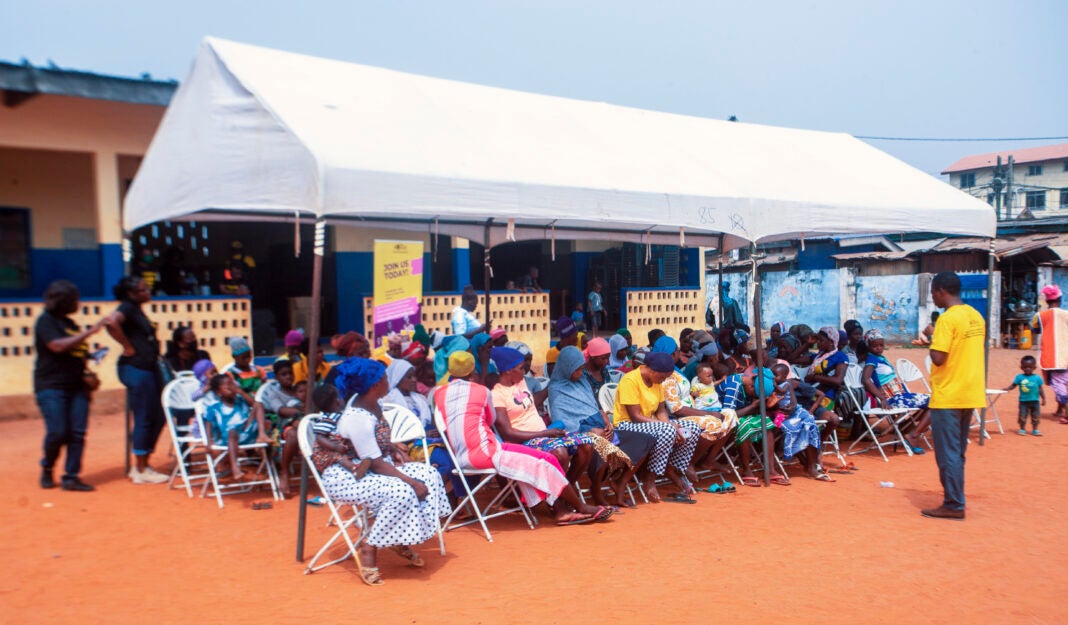By Ruth Zeto
Rose Service Learning Fellow
MPH Candidate, Global Health
Growing up in Ghana, I saw teenage girls like me carry aluminum pans on their head with goods from one part of the market to the other for income. Not only teenage girls did I see, but also women. On the busy streets of major cities like Kumasi and Accra, they can easily be spotted with aluminum pans with goods, heavier than their bodies could carry with some having babies behind their backs. Storefronts are convenient places to rest at night after a hard day’s job for those with no form of shelter. They wake up as early as 4:00am to start work and sleep as late as 10-11:00pm when most shops would have closed. They are strong, resilient, and courageous.

These are female head porters popularly known as “Kayayei” in Ghana. ‘Kaya” is a “hausa” (lingua franca spoken in some parts of northern Ghana) word meaning goods and “yoo” is a “Ga” (language spoken by natives of Accra) word meaning woman, thus yei” being women (Opare, 2003).
There are about 100,000 female head porters in Ghana with over 70% in Accra, the capital city of Ghana due to high demand for their services (Kiniry, 2022). They move from the northern part of Ghana to the southern sector to seek for greener pastures. They are subjected to verbal abuse, sexual harassment, and discrimination. The difficult nature of their work and the maltreatment they face contribute to poor mental health outcomes. A study by Komaseur in July 2021 showed majority suffer from poor physical and mental health including anxiety (94.4%), depression (86.6%) and stress (42.2%).
I always think about how these women cope through the stresses in life with little or no support. How they feel and cope when they are looked down upon? How hopeful they are about their situation and life? Pause for a moment and let’s do this reflection exercise. Have you ever been belittled based on the color of your skin, occupation, sexual orientation? Has someone ever made you feel that you don’t matter? How did that change your mood? What emotions did you feel? Imagine going through this experience everyday of your life? How will that affect your mental health?
I had the opportunity to return to Ghana in January 2023 as a Rose Service Learning Fellow. The fellowship enabled me to work with Voice of Inspiring Inclusivity Change and Equity (VOIICE) a local NGO that raises awareness to marginalized issues in Ghana through story telling with focus on gender-based violence and discrimination. They identify and educate diverse groups on different forms of abuse and gender-based violence and provide information on where to seek help. In addition, they provide mental health services to women, communities, and marginalized groups through psychotherapy. Other forms of support include capacity building workshops, educational and financial support. Due to discrimination and myriad of issues these women face, they are prone to poor mental health thus VOIICE is providing mental health support for this group. I was involved in educating them on the symptoms of poor mental health and helping them understand what it meant if they had or are experiencing any of the symptoms and the various coping strategies that could be employed. Surprisingly, my assumptions in the capacity of an observer and clinician about their experiences of poor mental health was challenged when I took the position of a learner. My curiosity was heightened and wanted to know why. One thing that stands out amongst others is the sense of togetherness and relationships they build amongst themselves. One said,
“We tell each other everything, if someone insults me, I cry a lot, I feel sad that they do that to me and when I come back, I tell my friend who encourages me and tell me not to mind them and that makes me feel better”.
Another said,
“When they say those bad things to me, it pains me. I used to think and cry when I go to sleep. Now, I walk with my friend and we both fight them, because my friend always supports me, it makes me feel better and not too sad. Why will they insult me? because I am poor, and I don’t have anything.”

I also spent my time with VOIICE conducting health screening for these women as many do not get regular checkups.
The participants of our project can teach us many lessons, even as we are being trained to teach them something. Lessons include being more kind with our words, building good relationships, and being there for the people around us. The valuable and genuine relationships they build among themselves keep them less depressed and anxious about the future. I thought I was going to impact their lives, but rather was thought the power of togetherness and the importance of building strong and meaningful relationships with the people around me. This experience is teaching me more about the importance of community-based approach in the management of mental health related issues in marginalized groups including task-shifting with the use of trained lay people from the community of interest as counsellors to provide psychotherapy. It is worth remembering for my public health practice.
REFERENCES
Kiniry, Laura. “The Women Dedicating Their Work to the Wellbeing of Ghana’s Head Porters.” Conde Nast Traveler, 14 February 2022, https://www.cntraveler.com/story/the-women-dedicating-their-work-to-the-wellbeing-of-ghanas-head-porters. Accessed 6 February 2023
Opare, James Adu. “Kayayei: The Women Head Potters Of Southern Ghana.” Journal of Social Development In Africa, vol. 18, no. 2, 2003, pp. 33-48. African e-Journal. Accessed 6 February 2023.
Komesuor, J. (1970, January 1). Physical and mental health challenges of migrant female head porters (Kayayei) in Ghana: Guidelines for Health Promotion Interventions. ResearchSpace Home. Retrieved January 24, 2023, from https://ukzn-dspace.ukzn.ac.za/handle/10413/20073

You must be logged in to post a comment.